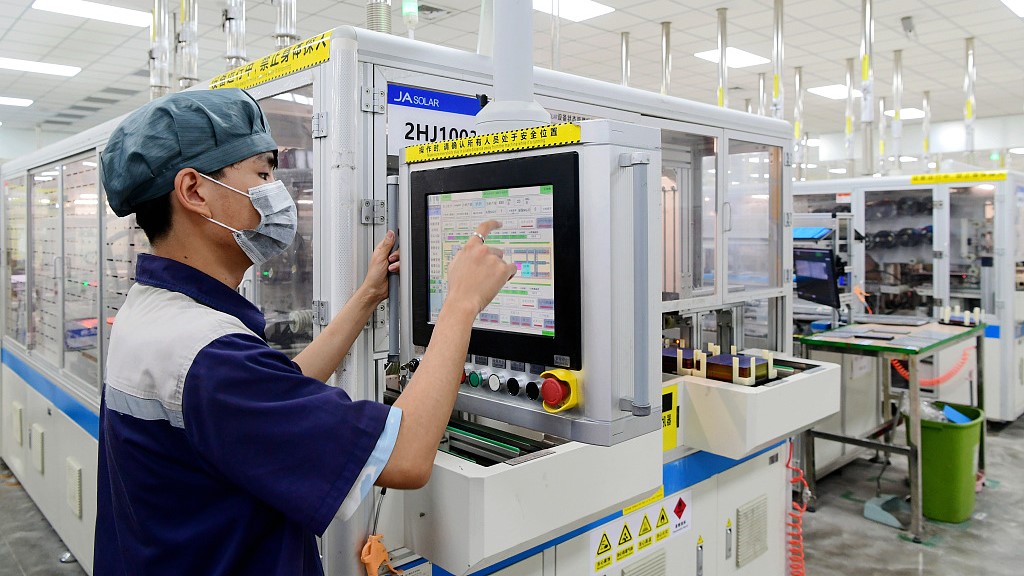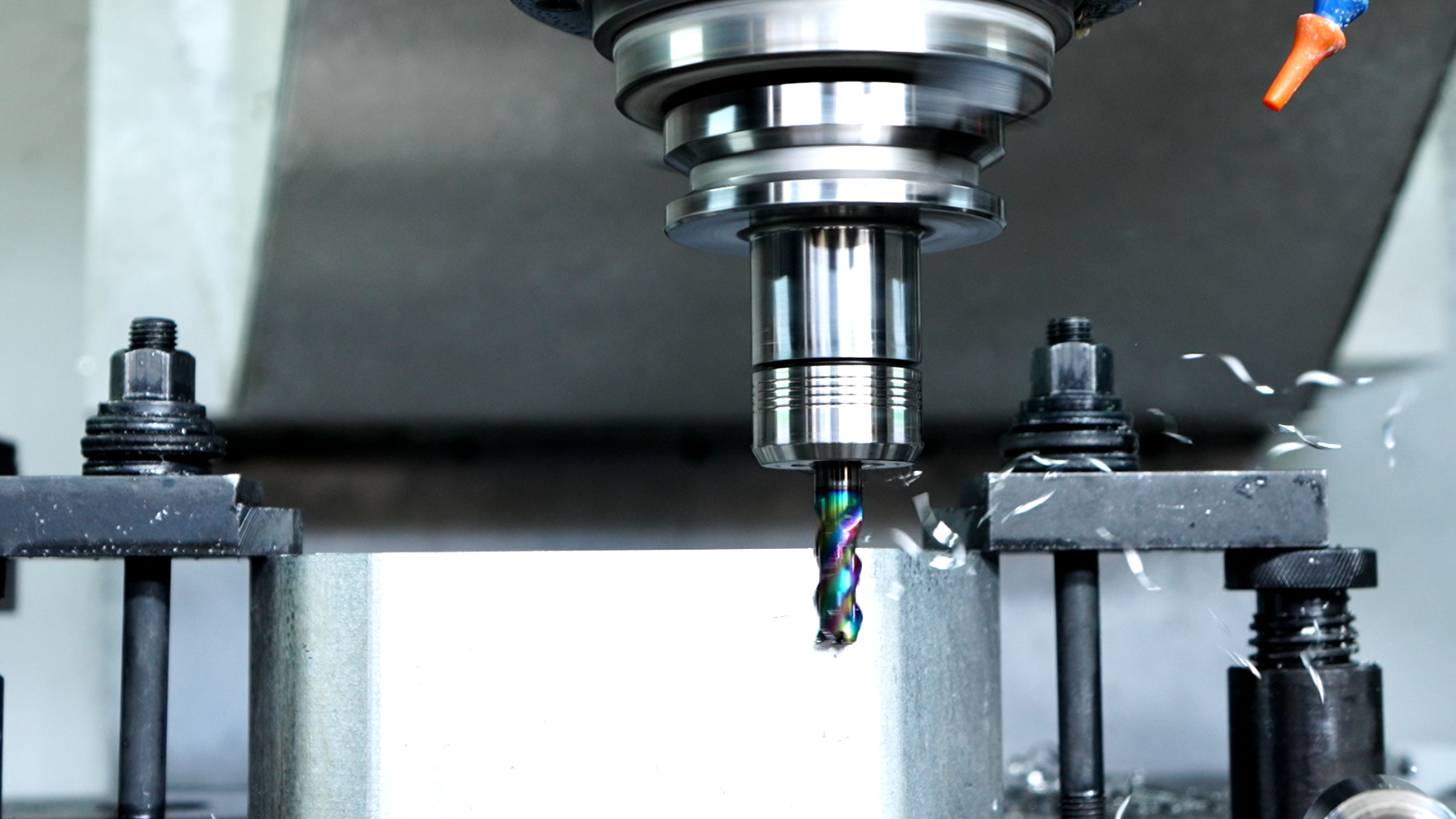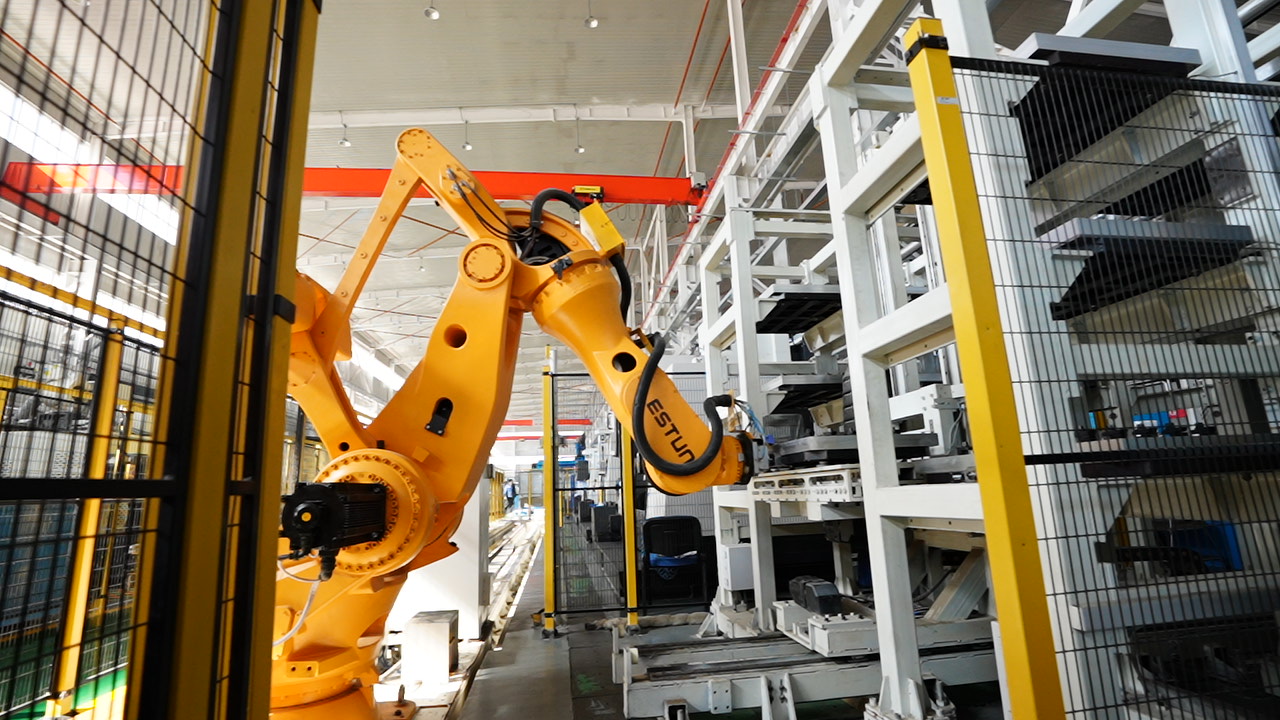
Dai Tianfang is a chief technician at Beijing Hangxing Machinery Manufacturing Co. /CGTN
Dai Tianfang is a chief technician at Beijing Hangxing Machinery Manufacturing Co. /CGTN
Editor’s note: China’s congress system is one of a kind, with deputies in the National People’s Congress coming from all walks of life. In this special series, CGTN interviews representatives to find out how they represent the voice of the people and what they bring to the table of China’s upper legislature during the most important Two Sessions this year.
Leaping advances in artificial intelligence technologies have recently brought excitement and concern to workplaces around the world. This has revived the debate about what is considered a uniquely human job and what can be replaced by machines.
“Regardless of the type of work, with the progress of the times and the development of technology, the life span of a career cycle is getting shorter,” said Dai Tianfang, a chief technician of Beijing Hangxing Machinery Manufacturing Co., a Chinese company that manufactures aerospace equipment.
For the past 34 years, Dai has been toiling in his company’s production plant, and is now the proud holder of the rights to more than ten different inventions, a testament to the spirit of a true craftsman: persistence, the pursuit of excellence, and innovation. He considers technology a “force” that can be used to liberate work and productivity.
Flashing back to the beginning of his career, Dai recalls that he first took up his position in the factory at the age of 19. A lot of manual labor was required then. He and his colleagues eventually developed the muscle memories for precision work through practice — like how good marksmen can hit a bullseye without even looking.
As the aerospace industry has always been at the forefront of high-end manufacturing, it wasn’t long before the idea that brawn trumps brains in a factory job became an outdated concept.

A technician operates automation equipment at a factory in east China’s Zhejiang Province, June 22, 2021. /CFP
A technician operates automation equipment at a factory in east China’s Zhejiang Province, June 22, 2021. /CFP
In Dai’s role as an on-site operation technician, he is required to set up 3D modeling, integrate flexible manufacturing technology, on top of cutting a work piece. Accuracy requirements mean room for error in processed work pieces within a fifth of a hair strand.
Dai is also a lawmaker, as one of the nearly 3,000 deputies of the National People’s Congress that convened in the recently concluded Two Sessions and brought some of the ideas he had learned over the years to in the highest legislature of the country.
His proposal is to push for the training of more interdisciplinary talent in China.
Dai explained that the interdisciplinary technician is an on-site engineer. The idea is that this person, if there is any abnormality or problem, will immediately know the theory behind what is wrong, and how to fix it immediately.
He wonders if using “engineer” as a job title will attract more students to take a technical major in school, while emphasizing the importance of growing it as a hobby, as the saying goes: ” Interest is the best teacher, but interest is not taught in classrooms.”
Dai suggests that children should be given more opportunities to practice practical skills and help them make connections between objects. But Dai knows the obstacles in his way: Nowadays, when something breaks at home, people tend to buy a new one instead of trying it on.
Dai himself became interested in fixing things as a child and later found that the sound of a machine cutting a piece of work was like music to his ears. The “incredibly beautiful” sound means a “perfect” product is about to come out, he told CGTN in an interview.

A machine drives a cutter to cut a piece of work. /CGTN
A machine drives a cutter to cut a piece of work. /CGTN
Besides the lack of interest in fixing things, there are many factors that make working in a factory unattractive. Many students do not decide on a career path in high school because they always hope for good universities to guarantee them a good office after graduation. A common myth is that going to a vocational college reduces one’s chances for anything more than a repetitive and low-paying job for life, but Dai said that this is not true.
Dai is a firm believer in the value of continuous learning on the job and providing salary increases in line with skill levels. Speaking of breaking the ceiling on job skill levels, Dai said his company has been implementing eight job skill levels for many years. He says that having more levels of job certifications gives technicians more recognition in their professions, offering more goals to hit and providing financial incentives.
First elected deputy of the National People’s Congress in 2018 and starting his second term this year, Dai has always focused his attention on improving training and employment for technicians.

A robot arm in a factory plant. /CGTN
A robot arm in a factory plant. /CGTN
During the annual Two Sessions in 2021, he proposed more interactions between companies and vocational colleges. Following this, he was invited to join a national committee for high-end equipment manufacturing as a result of his proposal. The committee, with representatives from 24 other institutions and 27 colleges, aims to bridge the gap between what is taught in school and what is adapted in factories.
China amended its Vocational Education Law during the 2022 Two Sessions to offer more favorable clauses to support young people to learn skills and attend technical schools. This year’s government report also highlighted the “strong” development of vocational education.
As China’s manufacturing sector develops, the demand for a workforce with good technological knowledge also increases. Intelligent robots, cloud computing, virtual reality and other high-tech technologies and techniques are slowly being used in the production process.
Dai says it may take a long time for social awareness of the merits of technical jobs to change. But he hopes that more people will develop an interest in the high-end equipment construction industry and choose it as a career in the future.
Reporter: Huo Li
Copy editor: Teoh El Sen
